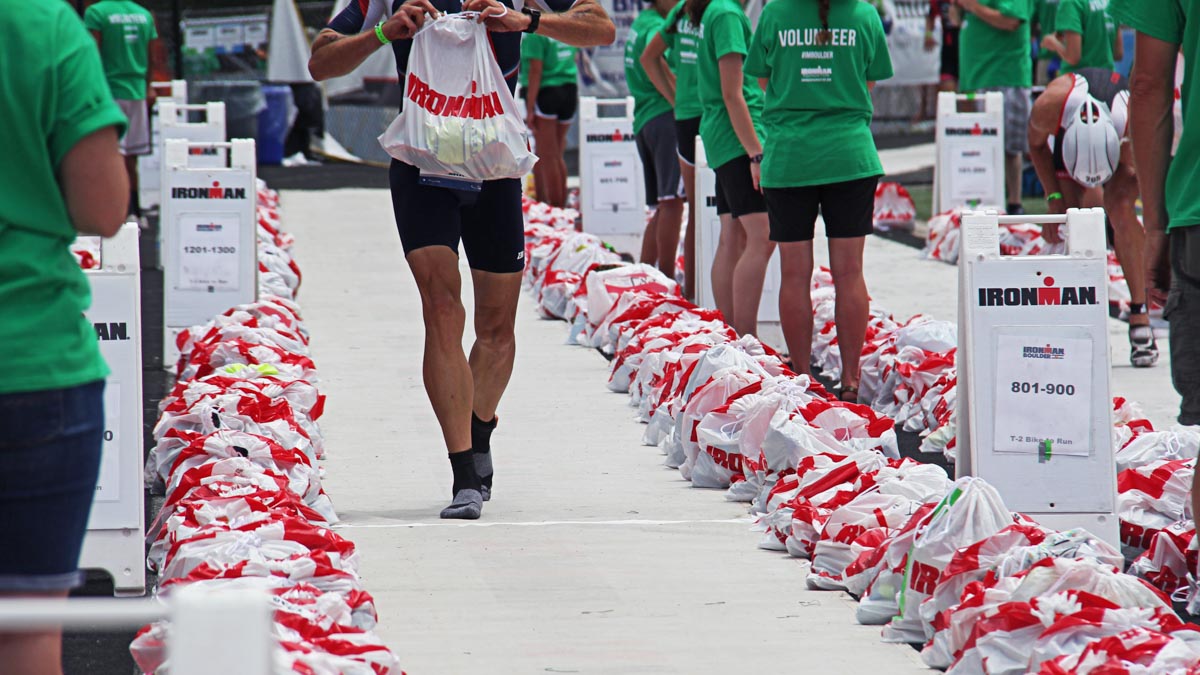One of the most inspiring things about triathlon is that it is so inclusive and connecting. By competing in age groups, athletes can be competitive throughout their life and into their later years. There is equal prize money, and although more could be done for gender equality, there is certainly progress being made.
You can also be a triathlete whether you race for 30 minutes or 17 hours—but individuals, clubs and groups tend to focus on IRONMAN distance. Maybe we’re all just taken in by a challenging bucket list item, or perhaps it’s the tagline by John Collins: “Swim 2.4 miles, bike 112 miles, run 26.2 miles and brag for the rest of your life.” Either way the allure of IRONMAN can easily get people in over their heads.
Having coached athletes at the sharp end of racing in IRONMAN age group events, as well as those who cross the finish line with only a few seconds to spare, I truly empathize with anyone who decides to do an IRONMAN. However, it is a big step up from shorter distances in terms of time, money, gear and mental energy. If you’re wondering whether you’re ready for an IRONMAN, here are some signs you should consider a shorter triathlon instead:
You have Minimal Endurance Experience
If you are new to the sport (less than two years) and you have only just started doing endurance events, you may want to reconsider your goal. Take your time to build up to the longer distances, and you will have the opportunity to learn more along the way. This will set you up for more positive experiences, which will probably keep you in the sport longer.
You Don’t Have Time to Train
Many of us find ourselves unable to get consistent training for more than two or three months without disruption. This could be due to injury, work, family obligations or other commitments. In IRONMAN training, the most important factor in success is not your ability to log monster weeks but rather your capacity for consistent training week-to-week—if that’s going to be a significant challenge then you might want to set your sights lower.
You Haven’t Learned All Three Sports
It sounds obvious, but making your first triathlon an IRONMAN adds a level of stress which will likely become unmanageable if you’re also trying to learn how to swim or ride a bike. This is one situation when you definitely want to learn your trade with a season or two of shorter distance races.
Your Support System Isn’t Involved
IRONMAN training will have an impact on the people around you. You will need to spend more time on your bike or out running, and when you aren’t doing that you will probably be eating or tired! Recognize that this is not something that only impacts you, but also those you live with and those around you. Can they also cope with the training you want to commit to? Have you asked them? Having the support of your family and friends will drastically increase your chances you have of success—without it you’re fighting an uphill battle.
It isn’t Your Plan
Make sure this is your goal and you aren’t getting swept up by others. This is crucial because as the training load increases, you’ll need to draw heavily on your personal motivation. If that motivation is actually somebody else’s, you’re going to have a hard time doing the work you need to do to prepare.
Ultimately the question you have to ask yourself is: will this race be about competition or completion? Although there are training plans out there offering solutions for time-pressed triathletes, there are no real shortcuts to racing this distance. If you cannot commit fully to the process, then you may want to delay tackling this distance until you feel you can be proud of your result.










